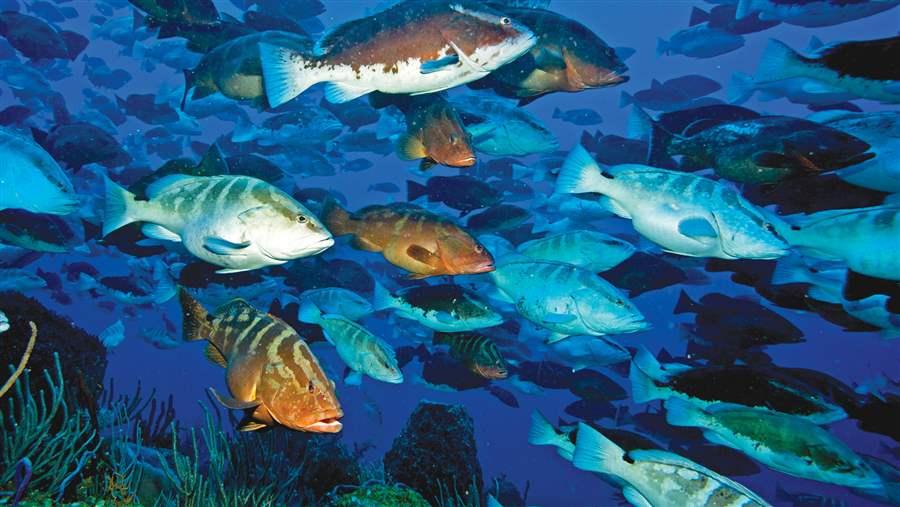The Science Behind Big-Picture Fisheries Management
U.S. fishery managers have historically focused on one species at a time when determining how, when, and where fishing will take place. This approach often ignores the fact that each fish population is part of an interconnected ecosystem in which fish interact with other fish, ocean wildlife, and their habitats. Overfishing, as well as threats such as warming waters, ocean acidification, and habitat loss, can cause ripple effects in ecosystems, including the decline of multiple populations.
Ensuring the long-term health of marine species requires consideration of interactions among species, their environment, and the people who rely on them for food, commerce, and sport. This scientific approach, called ecosystem-based fisheries management, helps to conserve healthy ecosystems, maintain sustainable fisheries, and address the increasingly complex challenges facing the world’s oceans. Ecosystem-based fisheries management is, however, a relatively young endeavor, and new scientific findings will help improve and expand its implementation.
Additional Resources


This video is hosted by YouTube. In order to view it, you must consent to the use of “Marketing Cookies” by updating your preferences in the Cookie Settings link below. View on YouTube
This video is hosted by YouTube. In order to view it, you must consent to the use of “Marketing Cookies” by updating your preferences in the Cookie Settings link below. View on YouTube






